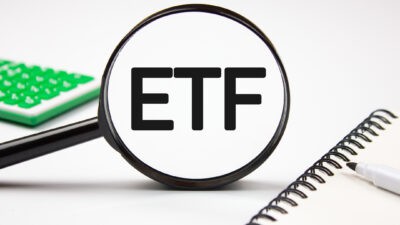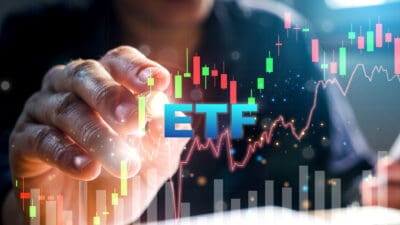There are many different ways to invest in ASX shares. But could Vanguard Australian Shares Index ETF (ASX: VAS) be the cheapest way to do it?
The VAS ETF is an investment that provides exposure to 300 of the biggest businesses on the ASX.
What is Vanguard?
Vanguard is one of the world's biggest asset managers. The Vanguard Group was founded in 1975 and has over $11 trillion of assets under management globally across more than 400 funds. Vanguard Australia was founded in 1996 and has $142 billion of assets under management across 82 funds.
How is it different to other managers?
The investment manager says that its focus is always on putting the interests of investors first.
It says that its core purpose is to take a stand for all investors, to treat them fairly, and to give them the best chance for investment success.
Vanguard's ownership structure, where investors are owners of the business, aligns its interests with investors and drives the culture, philosophy and policies throughout the organisation around the world.
A key selling point of Vanguard is its low costs for investors. That's also one of the selling points for Vanguard Australian Shares Index ETF. Indeed, it says:
Providing leading, low-cost investment products and solutions to investors isn't a pricing strategy for us. It's how we do business.
Our unwavering focus on making decisions in the best interests of investors ensures we deliver a disciplined and consistent investment experience.
As its assets under management increases globally, it aims to reduce its expense costs/ratios for the investors in the funds.
It is already at a very large scale, which helps it keeps costs low for investors.
What are the benefits of low costs?
The lower the costs of investing, the more money that investors get to keep themselves in the VAS exchange-traded fund (ETF) or any other product.
As Vanguard points out, every dollar someone pays for fees and costs is a dollar less of potential returns to that person's portfolio. Compounded over time, every dollar saved contributes to overall fund performance.
It's not just scale and a desire to lower costs that helps Vanguard provide lower costs. It says:
Our focus on efficient portfolio management and low turnover means lower ongoing transaction costs and expenses for our investors.
Is VAS ETF the cheapest way to invest in ASX shares?
When looking at some of the largest diversified investment options, there are several with very low fees.
For example, one of the oldest listed investment companies (LICs), Australian Foundation Investment Co.Ltd. (ASX: AFI), has an annual management fee of just 0.14%.
Argo Investments Limited (ASX: ARG), another of the oldest and largest LICs, has an annual fee (also called a management expense ratio) of 0.14%.
Now let's look at Vanguard Australian Shares Index ETF.
The VAS ETF has an annual fee of just 0.10%. For that fee, investors get cheap exposure to the ASX's blue chips like Commonwealth Bank of Australia (ASX: CBA), BHP Group Ltd (ASX: BHP), CSL Limited (ASX: CSL) and Macquarie Group Ltd (ASX: MQG).
But there is an ETF with an even cheaper cost.
BetaShares Australia 200 ETF (ASX: A200) has an annual fee of just 0.07%. It claims to be the world's lowest cost ASX shares ETF.
With similar holdings and costs, it is up to investors to decide which provider they want to go with.









